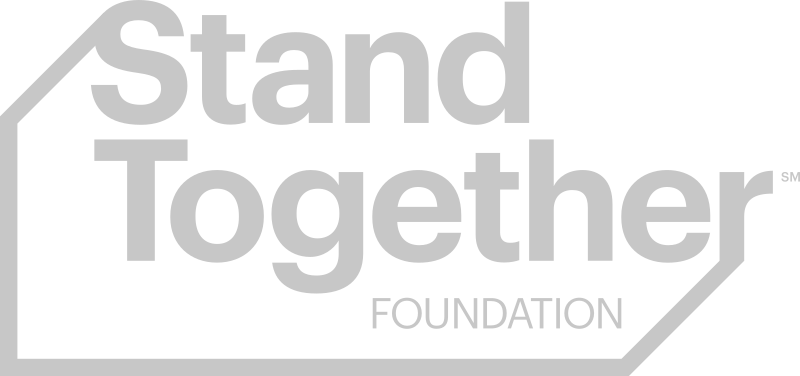The high grass obscures the gravestones of McBee Cemetery in Mississippi. It’s been four decades since Carl McGrone has been back to his hometown.
“Here we go!” McGrone exclaims.
He pulls some blades of grass away, revealing the name on his father’s headstone: George McGrone, a World War II veteran. His father passed away when he was a teen. To help take care of his family, McGrone dropped out of high school to look for work. He found a job in a meat processing plant.
After 32 years, McGrone has decided to go back and get his high school degree.
“My dad, he’s the one who made me who I am,” McGrone says, wiping away a tear. Standing at his father’s grave, McGrone reflects on how his father inspired him to always strive to improve himself.
“Because of your training, my upbringing, I know I can accomplish that.”
But deciding to obtain a high school equivalency diploma requires clearing a difficult barrier: the stigma of having never graduated high school as a teenager.
“People are very afraid because it’s something they have been hiding for a long time,” Jill Yeck, an instructor at Madison College, told Wisconsin Public Radio in 2016. “Their confidence is really low and so they are afraid to make the first step.”
McGrone’s not going it alone, however.
He found Schoolhouse.world, an online peer-to-peer tutoring platform designed to give virtual students the free support they need to accomplish their academic goals. Schoolhouse.world connected McGrone with several group tutoring sessions and tutors, including a Bay Area teen named Sachin Syal, to help him prepare for the exam.
“When I first became a tutor at Schoolhouse, I was expecting to be tutoring kids maybe my age,” Syal says; he didn’t expect his first student to be 52 years old.
The surprise went both ways — McGrone was shocked to see a teenager on the other side of the Zoom call.
Miles and decades apart, they share a goal: making sure McGrone gets his high school equivalency diploma.
Together, they are an example of a new education paradigm, one which may have seemed like science fiction not too long ago.
Benefits of continuing education
Earning a high school equivalency diploma has material benefits.
A high school equivalency diploma can open up economic opportunities, putting better jobs, skill-building programs, and postsecondary education on the table. People who do not finish high school generally have higher unemployment rates than people with degrees. (Although that gap closed in 2019 and actually reversed in 2020 — perhaps because of the COVID-19 pandemic.)
And even when a non-degree holder is able to obtain a job, research has shown that, on average, adults without their high school diplomas have incomes hundreds of dollars less per week than high school grads.
Despite this, there may be a decline in non-degree holders seeking a high school equivalency diploma.
According to education-focused nonprofit newsroom, The Hechinger Report, data on adults seeking to earn their degrees is no longer published yearly, making the picture muddy. What data there is, however, shows a sharp decline in the amount of people testing for their high school equivalency diploma.
“It’s a clear trend,” said Tom Hilliard, a former senior fellow at the Center for an Urban Future, which performed the research.
“Every state has fewer people obtaining high school equivalencies. We need to have alternative routes for people who don’t graduate from high school. Communities and states that have large populations of people who lack a high school credential are places that will have heavy users of public services, whether welfare or Medicaid.”
Schoolhouse.world
Schoolhouse.world is a free tutoring platform that could make it easier for anyone—especially adult learners like Carl—to seek out academic help.
School districts began experimenting with online learning last year as COVID-19 swept across the country. For many students, it wasn’t just the physical classroom that shut down, but high-quality instruction: the ability to access tutoring—be it peer tutoring, extra time with teachers, or small-group tutoring—became even more difficult.
Sal Khan, CEO of Schoolhouse.world and creator of the popular online learning resource Khan Academy, wanted to make access to high-quality tutors easier. He wanted to build another education platform, similar to Khan Academy, but one that facilitated free peer-to-peer tutoring instead of pre-recorded video lessons.
“We could literally have a place where people can come and not just learn from resources, from practice, from videos, but they could also learn and grow from and with each other.”
Sal Khan
That’s the goal behind Schoolhouse.world. The platform now boasts over 3,000 learners like Carl McGrone across more than 100 countries, with hundreds of online tutoring volunteers teaching courses for groups and individual learners.
The Test
McGrone was having a hard time with math.
“When it came to algebra, I was nowhere to be found,” McGrone says. “I would panic. Freeze.”
Every Sunday, for over a year, Syal in California has helped McGrone sharpen his algebra skills via video call. This free peer-to-peer tutoring is what Khan considers the gold standard in education.
Peer tutoring appears to have a positive impact on learning, according to Australian education organization Evidence for Learning. Math skills, in particular, seem to benefit the most from peer tutoring, and these classes make up the bulk of Schoolhouse.world’s courses.
“He showed me what he can do with one algebra problem, and I was like, ‘Oh, this guy is smart!’” McGrone says of his teen tutor.
Recently, his skills were put to the test.
McGrone went to Hawkeye Community College, near his home in Waterloo, Iowa, to take the exam to earn his high school equivalency diploma.
He came very close to passing the exam.
He didn’t earn his high school equivalency diploma this time around, but the impact Syal had on his learning is evident: he scored the highest in algebra. For that reason, McGrone was excited.
“Six months ago, if they gave me this test, I would’ve panicked, and now the panic is beginning to fade” McGrone says.
“I know I can pass this math test now.”
Syal and McGrone will be working together until that happens.



